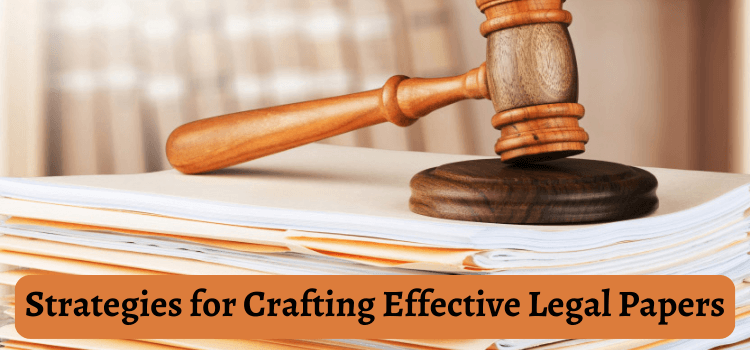Crafting effective legal papers is crucial for ensuring the validity and enforceability of agreements, contracts, and other legal documents. In this blog post, we’ll explore key strategies for documenting legality and creating robust legal papers that stand the test of scrutiny.
Legal documentation forms the cornerstone of countless transactions and agreements, ranging from business contracts to estate planning documents. The meticulous crafting of legal papers not only safeguards the interests of involved parties but also provides a clear framework for dispute resolution, should the need arise.

In Southlake, Texas, trust lawyers play a pivotal role in creating and managing trusts. These attorneys are specialized in understanding and interpreting the complex laws related to trusts, estate planning, and asset management.
If you’re seeking to establish a trust, it’s crucial to engage a trust lawyer in Southlake who can guide you through the intricacies of the process, ensuring legal compliance and protecting your interests. They can assist you in selecting the most suitable type of trust for your situation, providing valuable advice on tax implications and potential beneficiaries.
Clarity and Precision
The foundation of effective legal papers lies in clarity and precision. Ambiguity and vague language can lead to misinterpretation and disputes. Crafting documents with unambiguous terms, defined responsibilities, and specific clauses enhances their enforceability and reduces the likelihood of legal challenges.
Compliance with Applicable Laws
Legal papers must adhere to the relevant laws and regulations governing the subject matter. Whether it concerns real estate transactions, intellectual property rights, or employment agreements, ensuring compliance with the applicable legal framework is paramount. Legal professionals play a pivotal role in interpreting and incorporating the nuances of the law into the documentation process.
Thoroughness and Detail
Comprehensive legal papers leave no room for ambiguity or oversight. Thoroughly addressing all pertinent aspects, potential scenarios, and contingencies provides a robust foundation for the document’s effectiveness. This includes detailed provisions for termination, breach of contract, and dispute resolution mechanisms.
Professional Review and Revision
Engaging legal professionals for thorough review and revision of legal papers is essential. Experienced attorneys possess the expertise to identify potential loopholes, inconsistencies, or areas of improvement within the documentation. Their insight ensures that the legal papers accurately reflect the intentions of the involved parties and align with legal best practices.
Consideration of Future Implications
Crafting effective legal papers involves anticipating future implications and potential changes in circumstances. Flexibility in the document’s language and provisions, while maintaining legal certainty, can accommodate unforeseen developments and evolving legal landscapes.
Incorporation of Protective Measures
In certain contexts, legal papers may benefit from the inclusion of protective measures such as indemnification clauses, liability limitations, and confidentiality provisions. These measures serve to safeguard the interests of the parties involved and mitigate risks associated with the agreement or transaction.
Documentation Best Practices
Adhering to documentation best practices, such as proper execution procedures, notarization where required, and secure storage, adds an additional layer of credibility and authenticity to legal papers. Following established protocols bolsters the document’s integrity and facilitates its recognition in legal proceedings.
In conclusion, the art of crafting effective legal papers hinges on meticulous attention to detail, legal acumen, and foresight. By embracing strategies that prioritize clarity, compliance, and thoroughness, individuals and organizations can fortify the legal foundation of their agreements and transactions.






Leave a Reply